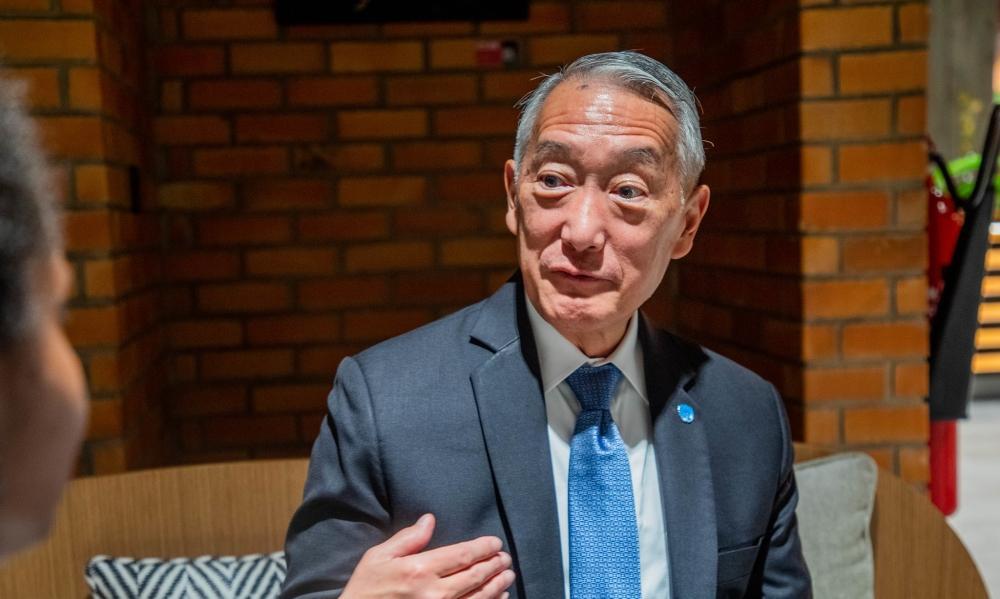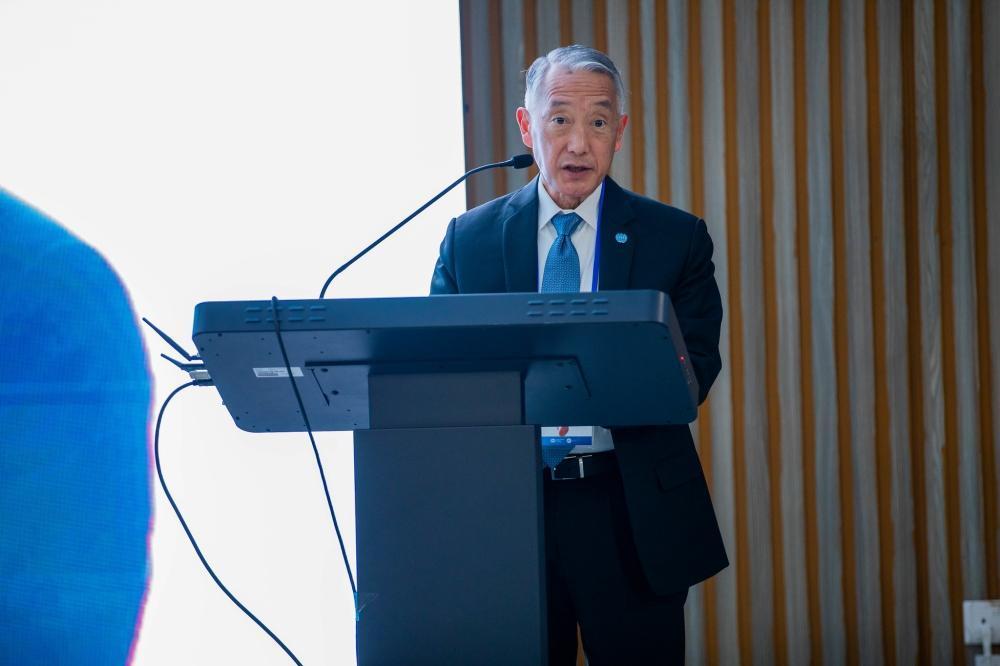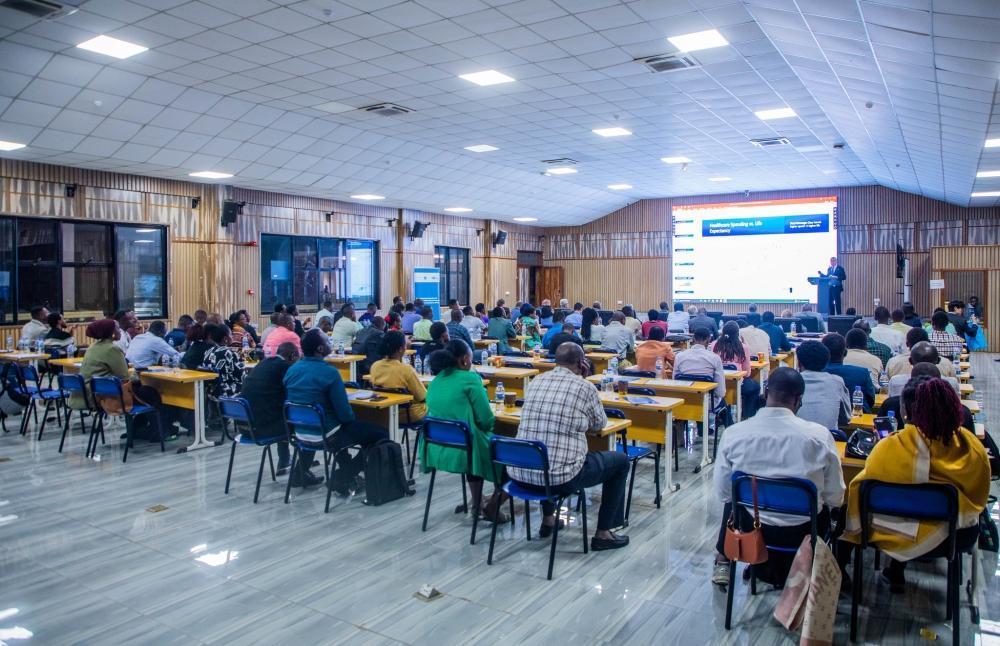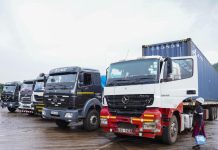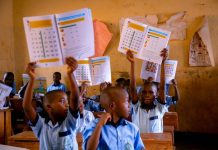Africa-Press – Rwanda. Rwanda is progressively emerging as a hub for vaccine research and manufacturing in Africa, by building the expertise, infrastructure, and regulatory systems needed to produce vaccines locally.
Dr. Jerome Kim, the Director General of International Vaccine Institute (IVI), an organization focused on developing vaccines for global health, spoke to The New Times about the country’s progress, the challenges of developing vaccines in low- and middle-income countries, and how Rwanda is preparing to meet international standards for production and regulation.
The excerpts:
Dr. Kim, could you tell us who you are and what the International Vaccine Institute’s mission is?
My name is Jerome Kim. I am the Director General of International Vaccine Institute, the only international organization fully dedicated to developing vaccines for global health. Our mission is to discover, develop, and deliver safe, effective, and affordable vaccines, and, more recently, to support vaccine equity and security.
My background is in infectious diseases. I started in HIV vaccine research, but over the years I have worked across laboratory science, clinical trials, vaccine policy, and manufacturing.
Can you explain the purpose of the recent IVI’s joint symposium with University of Rwanda and how it contributes to vaccine development for the region?
We are in Rwanda for meetings with the Ministry of Health and the IVI Board of Trustees. When the board meeting was confirmed, we added a joint symposium with the University of Rwanda to advance health through research and innovation. Several IVI staff members are affiliated with the university as faculty members, and since it has been two years since our last symposium, this was a perfect moment to hold another.
Delegates gather for a group photo during the meeting on vaccine research and manufacturing in Africa, held in Kigali on November 14.
Our board is made up of representatives from countries that fund IVI, two non-funding member countries, including Rwanda, represented by Professor Leon Mutesa, and 10 at-large members with backgrounds in finance, the pharmaceutical industry and global health. These include people like Helen Rees, the former chair of the WHO committee that issues global vaccine recommendations, and Seth Berkley, the former CEO of Gavi, along with senior figures from vaccine companies and main financial institutions.
Our job is to bring all these perspectives together around a single mission of developing vaccines that large companies won’t pursue because the markets are in low- and middle-income countries and the profit margins are low. Big companies innovate incredibly well, but they can’t justify investing heavily in products that won’t generate large returns.
IVI fills that gap by advancing innovations for diseases that affect poorer countries and moving them all the way to licensure and global use, cholera being a good example.
How is IVI’s regional office in Rwanda helping to build local vaccine expertise and capacity? And what did the symposium show about the country’s potential for vaccine development?
When IVI sets up a regional office, we work to build strong relationships with government, universities, and industry. The goal is to strengthen vaccine expertise in the country, support industry growth, and train the people who will eventually run research programmes, clinical trials, and manufacturing sites.
After COVID-19, everyone was talking about vaccine manufacturing. Building a factory is not the hard part; training the people who will work in it, and the scientists who will create the products for that factory, is the real challenge.
Without that human capacity, a factory doesn’t mean much, and Rwanda understands this well.
The symposium was part of that long-term engagement, explaining what it takes to move a vaccine from laboratory concept, through animal studies, and clinical trials, to regulatory approval and finally WHO prequalification, which is what allows UNICEF and other UN agencies to procure it. This week’s discussions also noted progress in Africa. South Africa, for example, is now testing the first oral cholera vaccine ever manufactured on the continent, produced by BioVac, using technology we transferred from IVI. If their vaccine matches the Korean version, it will be the first successful vaccine manufacturing technology transfer to Africa since the 1930s. That would be a great step toward closing the global shortage of oral cholera vaccine.
Dr. Jerome Kim, Director General of the International Vaccine Institute (IVI), delivers his remarks during the meeting in Kigali on November 14. Photos by Craish Bahizi.
Board members also toured Rwanda’s health intelligence center and were impressed by its advanced digital integration, including real-time vaccination data, disease alerts, ambulance routing, and drone deliveries.
They said openly that such systems don’t exist in the U.S., Europe, or even Korea. Seeing Rwanda’s capabilities firsthand boosted their confidence that vaccine development and manufacturing can succeed here.
How will IVI’s Africa regional office in Rwanda benefit the country and the region?
Let me use Korea as an example. When IVI was founded in Seoul in 1997, Korea had very little biotech capacity. By 2010, during the H1N1 (swine flu) pandemic, Korea still relied on imported vaccines. At one point, the U.S. government told Korea that if supplies became tight, the U.S. could legally confiscate Korean-purchased doses because they were manufactured in the U.S. That was a wake-up call.
We helped Korea design a long-term plan to become 80 percent self-sufficient in vaccines and a top-five global manufacturer by 2030. It involved advancing research, building small-scale manufacturing facilities for clinical-trial materials, setting up a funding system to support companies through “the valley of death,” and training people at every step. Korea is now halfway there and continues to grow.
For Rwanda, the approach is similar but tailored; we didn’t ask the government for funding. But we asked for a partnership to attract outside resources, develop skilled people, and build the scientific and regulatory capabilities needed for independent vaccine development. Rwanda’s leadership on this has been very strong.
One example is Achieve Africa, a new $100 million initiative for African-led HIV vaccine research. When the original USAID programme collapsed, we worked with African partners to rebuild it from scratch. Professor Drew Weissman, who won the Nobel Prize for mRNA technology, committed $50 million in funding plus open IP access for low- and middle-income countries.
Rwanda was one of the first countries to commit matching funds, followed by Zambia and Nigeria, with others on the way. The project headquarters will be here in Kigali. This is the model of African leadership, African ownership, and African scientific direction that everyone has talked about for years, now finally happening.
What steps is Rwanda taking to build the expertise, facilities, and regulatory capacity needed to develop and produce vaccines locally?
Vaccine development is a long chain, and discovery is only the beginning. You need facilities for high-quality animal testing, small-scale manufacturing that meets international standards, and trained clinical trial teams.
You need regulators who understand novel vaccine platforms, and funding to move products from one phase to the next. You also need a decision-making pathway. WHO’s advisory group, SAGE (Strategic Advisory Group of Experts on Immunization), reviews all new vaccines and recommends whether countries should use them. Rwanda needs to be ready to generate the kind of data that SAGE and other regulators require.
Human capacity is the biggest need, but the good news is that we already run the main training programmes. IVI hosts the WHO Global Training Hub for Biomanufacturing, funded by Korea.
So far, 1,000 people from around the world have completed its two- and three-week intensive courses. Graduates then train further at the mRNA hub in South Africa, learning from an operating mRNA manufacturing facility.

Source: The New Times
For More News And Analysis About Rwanda Follow Africa-Press

